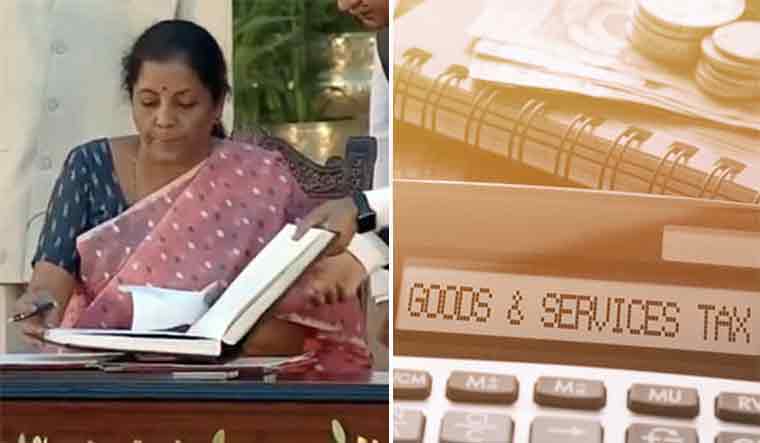A tax cut for the beleaguered automobile sector has been a clamour for such a long time that it had virtually started sounding like a stuck record that somebody forgot to turn off. An annual demand before the Union budget is announced, and always getting a statutory mention every time the ever-declining sales data of the industry is released, or when the industry bodies like SIAM get into a huddle.
Snubbed at the altar for far too long, even the auto sector must have been taken aback when the government itself ventured to put the issue on centre stage this week. At the annual convention of the auto manufacturers body SIAM, none less than revenue secretary Tarun Bajaj dragged the topic in, ostensibly declaring that the government wasn't averse to "tinkering" with the GST rates.
Automobiles come in the highest GST slab of 28 per cent. It had been a longstanding call from auto majors for a reduction in the rate that they say could help in boosting sales. The call had gotten shriller, particularly after the slowdown in the economy seen since 2019, which has seen a directly proportional drop in across-category sale of vehicles in the country.
At the auto conclave on Wednesday, Bajaj said, “I would be very happy to engage with you to see what we can do even on tax rates, what is the tinkering we can do to see to it that certain (vehicle) segments get the encouragement they deserve.”
However, there is a reason why there's been a pregnant, cautiously optimistic silence on the part of the industry since this out of the blue bonanza. For one, Bajaj's speech also set the cat among the pigeons by asking auto companies to introspect on the actual reasons for the decline in automobile sales—whether it was only due to high taxes or whether there were "other reasons" as well.
Before the pandemic, Finance Minister Nirmala Sitharaman had famously attributed the decline in auto sales to millennials opting for shared mobility solutions like Uber and Ola instead of buying their own vehicles.
Despite Bajaj dropping a bomb, the fact that the industry is not popping the bubbly is an indicator of the realistic attitude it seems to have adopted after repeatedly being buffeted by one crisis after another over the last three years—from the forced upgrade to BS 6, the government's active promotion of the electric vehicle industry with tax cuts and other incentives, and refusal to heed to most of the demands of the combustion engine manufacturers, and the hard lessons they've learned after Covid seem to have the turned the once flamboyant auto majors cautious and disenchanted in equal measure.
There were no welcoming statements to the revenue secretary's comments. When THE WEEK reached out, no one wanted to stick their neck out with a comment.
also read
- GST collections hit Rs 1.78 lakh crore in March, second highest since roll-out
- GST enforcement body begins action against FMCG majors like ITC, Pepsico and others for tax evasion
- GST collections rise to second highest-ever at Rs 1.72 lakh crore in January
- GST officers detect over 29,000 bogus firms involved in fake ITC caims of Rs 44,000 crore
The reasons aren't too far out. This is the third year in a row that a comment on the auto industry tax cut has been made from the government. In 2019, it was Sitharaman herself who publicly announced that the proposal will be considered at the GST Council meeting. A year later, it was the turn of the heavy industries minister Prakash Javadekar who hinted at "good news" and said the details of the GST rate cut proposal were being worked out.
Again this year, though this time from the revenue secretary. Interestingly, all these public pronouncements happened in the end-August-early-September period, ahead of the big festive shopping seasons start.
It is also likely that even if the idea is taken through, it is likely to apply only to certain categories. Like, for example, tractors or commercial vehicles, indicators of economic activity and have been badly affected in recent years. Or perhaps for two-wheelers, the mass category that the lower middle-class and rural India uses. Otherwise, for a revenue-strapped government trying hard to deal with the twin-challenges of low-revenue due to Covid ravage even while trying to kickstart the economy by infusing stimulus by pumping in cash into the system, an across-category GST cut on automobiles sounds next to impossible.





